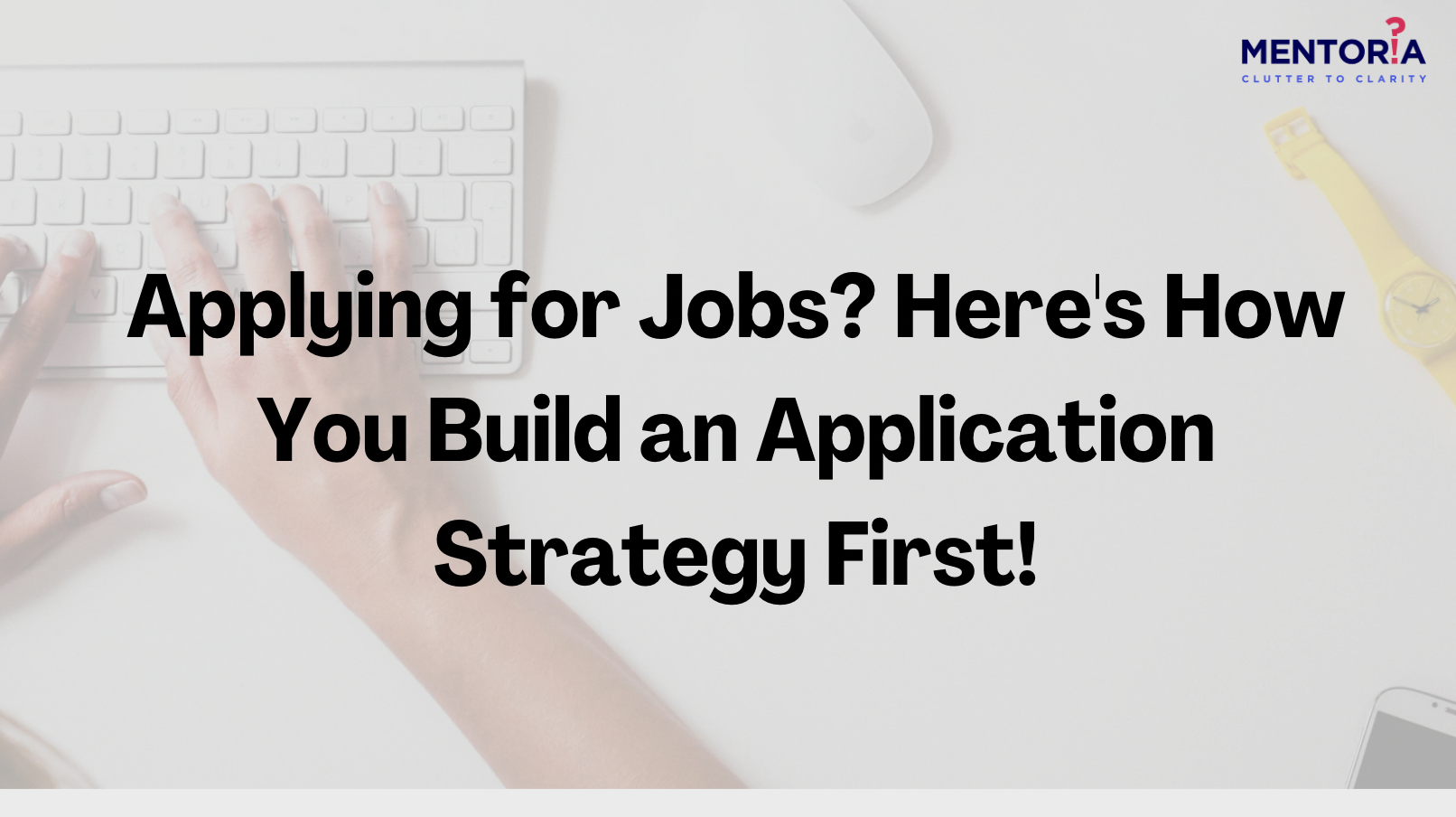Applying for Jobs? Here’s How You Build an Application Strategy First!

Picture this, you have graduated from college, you have a degree and tons of knowledge. You want to put this knowledge to use now and make money out of it. What do you do? Yes, you guessed it right. You apply for jobs.
“But where to start?”
Great question, well, let’s start by preparing your job application.
Whether you are looking for a job because you lost your work or you are thinking about changing careers, having effective techniques is essential. Your likelihood of being invited for an interview might increase if you know how to complete a job application correctly. We know what you’re thinking, this may seem like a lengthy procedure but don’t be disheartened, we are here to make things easier for you! The time-consuming process of applying for jobs can be made less daunting, more rewarding, and more organized by developing a strategy. So let’s make an application strategy for you!
Let’s Get You Your Dream Job!
Application strategy is basically your idea of how you are going to search and apply and follow up for jobs until you land an interview in your dream firm. Here is our suggestion:
Although it sounds clear, many people approach this the wrong way.
The best method to begin is to look for work first. Job criteria are constantly changing, so if you haven’t been looking for work in a while, your understanding of what is now necessary is likely out of date. Therefore, the first step is to research your chosen subject to see what is available and what is in demand.
It is a good idea to go back and read the job description a few more times even if you only skimmed it before deciding to apply to ensure you did not miss any important information. Hundreds of applications are frequently submitted to employers for a single position. Eliminating candidates who they believe have not read the job description or qualifications is one of the most popular strategies they employ to reduce the pool of applicants.
- Let Networking Do The Magic
One of the most successful methods for finding a job is networking. It enables you to find out about job openings that might not be extensively posted, if at all. Your chances of finding out about open positions increase the more connections you make and the more individuals you let know that you’re looking for openings. Additionally, you can get a referral in the process.
You can increase the size of your network by adding friends of friends using various internet services like LinkedIn. The more people you know, the more probable it is that you’ll learn about fresh opportunities.
Job fairs, which are regularly conducted all year, provide you with the chance to speak with hiring companies in person. Find out in advance which companies will be present at the employment fair by doing some research.
- Be Selective!
Your time is valuable, and this is especially true if you want a job quickly. Don’t waste it by submitting numerous applications for jobs in which you have merely a passing interest. Instead, spend some time thinking about the kinds of jobs you would actually enjoy, then utilize your time effectively to hunt for and apply for jobs that fit your needs.
A targeted application strategy is built on a list of three to four, and no more than five, job profiles. The job of your dreams needs to be at the top of your list. The job you’d probably “work” at even though you’re not all that excited about it can be at the last.
Online job boards are plentiful and make it simple to look for, apply for, and follow up on career opportunities. You can tailor a search for almost any industry on websites like Indeed and Monster, and you can also submit your CV and set up notifications to make it easier for employers to find you.
It is preferable to target organisations for which you want to work instead of the openings they are offering. Make a list of the companies for whom you have the greatest interest in working. They need not currently have positions that are a good fit for you, but they should be able to in the future.
- Check your Email Address And Instructions Well
An applicant using the email address “muscleman38” will not be considered professional by any employer. A professional email account is required for a professional job application. Even if the remainder of the applicant’s resume demonstrates that they are a perfect fit for the position, some employers may exclude them for having an unprofessional email.
Sometimes a field on a job application asks for a complete paragraph, a few phrases, or just a “yes” or “no.” Several professions necessitate lengthy responses to detailed questions. Make sure you are answering the questions accurately, regardless of what they specifically ask for. Make sure you understand the question by reading it again and then take your time coming up with a thoughtful response.
Long answer questions may not be included in every application, but it never hurts to carefully follow the directions. It shows an employer that you are a qualified applicant and interested in the recruiting procedure.
You should modify your cover letter to fit the application if you are applying in person or online for a specific job. Look at the job description and take note of the type of employee they are searching for before writing or editing your cover letter. The job description contains details on the educational requirements, the personality traits needed for the position, and the skill set they would prefer a candidate to have.
Incorporate details from the job description into your cover letter to position yourself as the ideal applicant. Make sure your sentences are brief but effective.
When writing a solid cover letter you want it to show three things:
- you know the company
- you have skills
- you have personality
There is no point in writing generic cover letters that have more language and no substance.
- Do Upload Your Customized Resume!
It can seem paradoxical to submit the résumé after filling out all the application fields with the information it includes. The company might require a paper copy of your resume for reference, but the application tracking system frequently does not compile the data you have provided into a printable document. Additionally, resumes are simple for the hiring manager to have on file in case they decide to get in touch with you later on regarding a position opportunity.
Each Resume you submit should be tailored to that particular job, just like your cover letter. Make sure to draw attention to your qualifications that are most relevant to the job, particularly those that are specified in the job description.
- Keep your search organized
You may arrange each firm based on where you are in the hiring process once you start applying. List each job you’ve applied for along with any additional actions you might need to take in a spreadsheet.
Here’s the idea: Consider maintaining a spreadsheet of the positions you’ve already applied for to save time by avoiding the need to send multiple applications to the same employer. Include the job description, the title of the position, how you learned about the vacancy, any login details you may need to follow in the progress of your application, and a link to the job posting.
Trust us, spreadsheets are your best friends here!
Employers frequently check your social media profiles in the current world. They believe Facebook and other social media platforms are reliable sources to learn more about the candidate they are recruiting.
You could also want to think about developing a website that is dedicated to your area of expertise, depending on your job. Depending on your skill set, this can also let you share your work. If you are a web developer, for instance, you could provide examples of the websites you have created.
It is possible to get a job quickly in the post-pandemic job market, particularly if you put in the effort to get ready. Your job application reflects these exact efforts and that is why it needs to be taken care of!
No Stopping But Also No Hurrying!
Perhaps you don’t have a job or have a job you don’t enjoy, which is why you’re reading this post. In either scenario, it’s okay if you’re experiencing a sense of desperation. It’s not fair to let desperation determine how you move forward. Desperation only creates rushed effort, hurried decisions, and meager outcomes. If you need help with your application, resume building or even job hunting then consider Mentoria!
Kick-start your career discovery journey with Mentoria & be sure to find the right career fit for you. Our 4-step career guidance solution, helps us find the right career fit for you from 3 streams, 850+ courses & 12,000+ careers.










